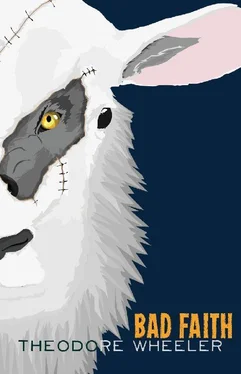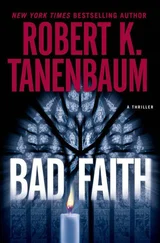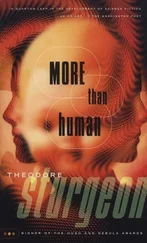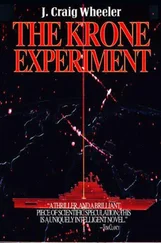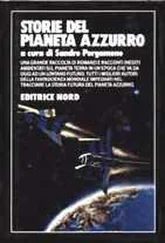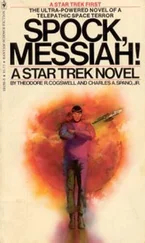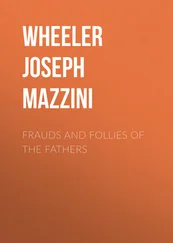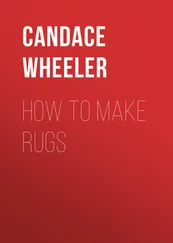This was a major error, something that wouldn’t be forgotten within the company. And what’s worse, in the coming weeks it seemed that this mistake was part of a bigger system, a network of checks and balances working to cut me down to size because of everything I’d done. In this line of work it’s impossible to believe in coincidences. Even more than that, it’s against company policy.
A week later, arms loaded with cleaning supplies, I arrived at the old man’s house to make amends. It was morning, a mid-August day. The Big Man had called me earlier, spitting vitriol. It was my assignment to arrange a cleanup. In a bigger city, a crew with professional grease monkeys would have been called in, but the operation in Nebraska was streamlined. I often pulled double-duty.
The Pontiac was pretty much as I’d left it, although it had been rolled into the driveway by then, like the old man had tried to drive it to the shop himself, flat tires be damned, then thought better of it mid-act. Slumped in front of his split-level, vinyl-sided house, the car had garbage bags taped over its windows. It was easy to peel off the plastic and reach inside to flip the lock. I scrubbed his seats with a soapy brush to free the same dog shit I’d so enthusiastically smeared in a week before. A glass guy met me there and began work on the windows, pulled off the door consoles to vacuum out the green squares of shattered glass.
The old man scrutinized us from behind his screen door but didn’t come outside. His finger was on the lock, his skinny legs peeking through a yellow robe. The squinty look reminded me of my own father, a small-town minister who never trusted me. I waved to the old man from the driveway. I had muscular arms and dirty-blond hair with an untamed cowlick spiking at the hairline. But I wasn’t a frightening figure by any means.
“How do you do?” I offered my hand on the outer side of the screen door but he didn’t budge. The old man was bald on top, with feathery white hair horseshoed from big ear to big ear. His blue eyes narrowed behind silver-rimmed glasses.
“Who are you?” he asked.
I smiled. “A mutual acquaintance said someone messed up your car. I’m here to fix it.”
“You’re from the church?”
“Not exactly.”
The old man looked me up and down before rattling open the lock. “You’re welcome to coffee, if you want it.”
It took most of the morning to get the car into shape. The glass man was finished in an hour, but it was a bigger job to put the car on blocks, lever off his flat tires and shuttle them to the nearest auto shop to be patched. Lamb’s-wool seat covers would obscure the stains, and three shampoo and rinse cycles eliminated the smell. It felt good to engage in this kind of labor, honestly, working in the sunshine instead of lurking in the damp hours of early morning.
Around lunchtime the old man came outside to inspect the work. He kicked the wet-black tires and leaned into the car to sniff the Armor All’d dashboard.
“Still don’t know who sent you,” he said, “but may God bless you for coming.”
“It’s no trouble, mister. Really. Just something that had to be done.”
He looked me in the eyes, pained resignation on his face, like he had something to tell me that couldn’t be said politely.
“I wonder if you’d let me know who did this,” he said.
“That wouldn’t be right,” I tried to explain, packing my supplies. “But you should know that they’re sorry. It wasn’t personal.”
“Does that make it better? That it wasn’t personal?”
I told myself that this was just my job, these things I did. Make Things Right was a corporation like any other.
“No,” I said, splashing a bucket of dirty water toward his grass. “I don’t think it does make it any better.”
After loading the gear into the back of my truck I shook the old man’s hand. He was so affable — wrinkled and saggy in his cardigan. I’d known dozens of men like him in my father’s church, growing up. Men I sometimes felt nostalgic for, even though I’d done nothing but terrorize them when I was young.
“If you need anything, let me know.”
“I will,” the old man said. He hung around my truck, hands in his pockets. “If you’re looking for more of this kind of work, I know a group that helps people.”
“A charity?”
I must have sounded dubious, or offended, because he reassured me it wasn’t a church.
“They help out those who can’t help themselves. People who have no one else.”
“We’ll see,” I said.
Maybe it sounds strange, but I’d never really considered nonprofit work before. Several of our agents had quit during that time to go into the charity industry, but the work we did was just as good as any NPO’s as far as I was concerned.
“Call this number.” The old man handed me a business card. “Frank is a friend.”
“Sure.” I slid the card into my shirt pocket without looking at it. “If you need anything. Dinner? Groceries? I can get it for you.”
“Call the number,” he said, then he turned to his house.
It wasn’t even three weeks later that the old man died. The lug nuts weren’t torqued tight enough, or were too tight, and had come free. A wheel wiggled loose while he drove and shot from the car; there was nothing the old man could do to stop from hitting a light pole. This too was on the news, a good Samaritan’s act of kindness gone wrong because the idiot didn’t know how to tighten a lug nut. Nothing special, really, if I wasn’t the idiot in this particular instance.
It didn’t take long, after hearing of his demise, to call the number the old man had given me. I was uneasy with the knowledge that my negligence had killed someone. I feared that my mere presence in the world was toxic. (My parents had also been killed in a car accident, I should let you know, although their deaths had nothing in common with the old man’s. This was six years earlier. Their car was run off a county highway by a semi loaded with sugar beets. These things happen. There was nothing weird in the way they died, except that they were my parents, for one, and that I was a lifelong fuckup, for another. But maybe there’s nothing weird about that either. Maybe that’s exactly the way it was supposed to happen.)
They called themselves the Coalition Against Poverty, Citizens dedicated to improving the experience of the poverty-stricken and destitute . It seemed meaningful that the old man had given me this card. Like maybe this could be free-range karma at work, the universe struggling to repair itself. This guy Frank answered my call and we set up a meeting.
CAP’s office was near downtown, in a decimated corridor off Zero Street that housed other charities and liquor stores. The area was familiar to me, a district of last vestiges, of architectural relics and human remnants. Their office was nice though. The interior was newly apportioned and restored, with shined furniture and red brick walls that looked original. It smelled like carpet adhesive, the way most offices do. In my past life as a corporate slob I’d been made to wait in a hundred lobbies like this one — in fluorescent mini-malls, in downtown skyscrapers, in reapportioned warehouses.
After filling out a packet of information I was shown to Frank’s office in the back of the building. Taking a seat, I apologized for calling on a Saturday.
“Not a problem.” Frank was a large man, thick through the shoulders and chest. He wore a worn-out shirt and tie. “As you can imagine, Saturday is a busy day for volunteers.”
“Makes sense.”
“Yours is an intriguing résumé,” Frank said. He flipped through my papers. “Impressive business credentials. Management training. Bachelor’s degree.” Frank sat at his desk in a catcher’s stance, his chair low to the ground, his knees up, hands open in front of his chest, ready to block any junk I could throw at him. “But nothing in the last five years,” he noted. “Did you win the lottery, Mr. Dandrow?”
Читать дальше
